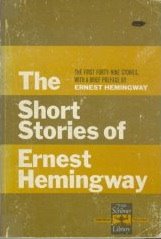
Ever wonder what it all means?
Guy Murchie did - for twenty some years (more, probably, because he's got more books). And the result of his fruitful ponderings is The Seven Mysteries of Life.
Life, Murchie begins, is only one part of existence, and to understand this, we must step back and take a look at the world from a birds-eye view. As an outsider, we see the intricate workings of the planet and are astounded by many things. Along the way Murchie finds and elaborates almost every conceivable mystery man has ever taken into consideration and turns them into a (most often) one-sided argument. Humans, according to Murchie, are interrelated with kingdoms, even species, evolutionarily and genetically (one and the same I suppose) so that we all are mere thousands of generations apart, given the species or kingdom. Plants behave maliciously as some predators, a flock of birds pictured from above resembles an island, and on and on until there are no delineations between anything and this world is a seed in germination of something larger. Examples abound to support Murchie's conclusions, but examples are not enough because examples do not hold up his argument alone.
The fallacy of the book is its age, and the fact that Murchie takes for granted some conclusions that have yet to be proven or even given credibility. The arguments may rest on faulty precis, but they lends to some interesting conclusions - even if they are falsely achieved. Its ability to ask questions, not answer them, is the strength of the book, and rightfully so, for it is called The Seven Mysteries of Life. So the bulk of his arguments ends up resting on a single card, paper thin, and all is needed is a semi-keen mind to blow it down. Still, the book does what its title suggests best: asks questions. Indeed, it makes connections between the cell of a human body analagous to the human body in relation to the earth, the earth to the galaxy, the galaxy to the universe. Even rocks have a place in the living, breathing, universe, and everything, from cars to plants to insects to humans is just a smaller part of a larger organism which behaves in much the same way (homeostasis-wise) as we humans do.
The best books get you interested in things. They get your mind going. They lead you to new interests and reinvigorate you to pursue old ones. This one has done it many times over for me, from a renewed interest in the microscopic world to finding out who my ancestors are. And even though the argument may be faulty, the conclusions lead to some interesting insights. Truth is a drop in an ocean of uncertainty, and most times imagining the possibilities those uncertainties have is enough to make one wish there never is a concrete answer to the seven, or any, mysteries of life.
This book weighs more than the soul does according to researchers quoted by Guy Murchie.


No comments:
Post a Comment